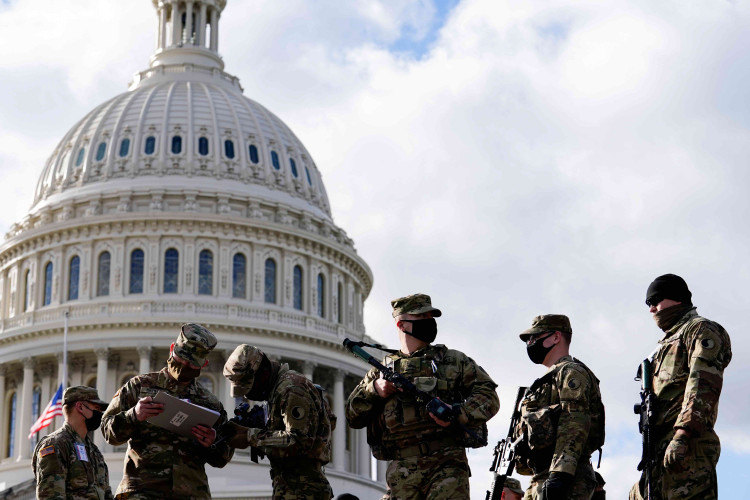A federal appeals court on Monday ruled that President Donald Trump can proceed with deploying National Guard troops to Portland, Oregon, overturning a lower court's order that had blocked the move and sparking renewed debate over executive power and state sovereignty.
In a 2-1 decision, the 9th U.S. Circuit Court of Appeals found that Trump "likely lawfully exercised his statutory authority" when he ordered 200 members of the Oregon National Guard to be federalized to protect a U.S. Immigration and Customs Enforcement (ICE) facility in Portland. The ruling temporarily stayed a restraining order issued by U.S. District Judge Karen Immergut on Oct. 4.
"After considering the record at this preliminary stage, we conclude that it is likely that the President lawfully exercised his statutory authority," wrote Judges Ryan D. Nelson and Bridget S. Bade, both Trump appointees. They cited a statute allowing the president to federalize the Guard when "the President is unable with the regular forces to execute the laws of the United States."
The Justice Department argued that Immergut's restraining order "improperly impinges on the Commander in Chief's supervision of military operations, countermands a military directive to officers in the field, and endangers federal personnel and property." DOJ attorney Eric McArthur told the panel that protests outside the Portland ICE facility had "blocked cars, spit on authorities and in one instance lit a fire outside the facility," adding, "These are violent people."
Immergut, herself a Trump nominee, had ruled earlier that the president's order appeared exaggerated and unsupported by evidence. "The President's determination was simply untethered to the facts," she wrote, noting that on the eve of the directive, law enforcement "observed approximately 8-15 people at any given time out front of ICE. Mostly sitting in lawn chairs and walking around. Energy was low, minimal activity."
The appeals court majority disagreed, saying the president's decision deserved deference. "Rather than reviewing the President's determination with great deference, the district court substituted its own determination of the relevant facts and circumstances. That approach is error," Nelson and Bade wrote. They added that "even if the President may exaggerate the extent of the problem on social media, this does not change that other facts provide a colorable basis to support the statutory requirements."
Judge Susan P. Graber, appointed by former President Bill Clinton, issued a sharp dissent calling the ruling "absurd." "Given Portland protesters' well-known penchant for wearing chicken suits, inflatable frog costumes, or nothing at all when expressing their disagreement with the methods employed by ICE, observers may be tempted to view the majority's ruling, which accepts the government's characterization of Portland as a war zone, as merely absurd," Graber wrote. "It is not merely absurd. It erodes core constitutional principles including sovereign States' control over their States' militias and the people's First Amendment rights to assemble and to object to the government's policies and actions."
Graber argued that the deployment lacked any factual or legal basis under the law cited by the administration, which allows federalization of troops only to repel an invasion, suppress rebellion, or enforce federal law when regular forces are insufficient. "No legal or factual justification supported the order to federalize and deploy the Oregon National Guard," she wrote, warning that "illegal deployment of troops under false pretenses can occur."
The 9th Circuit's decision affects only the Oregon National Guard deployment. A separate restraining order barring the use of out-of-state Guard units in Portland remains in effect, though the Justice Department is expected to seek its reversal. A similar restraining order in Chicago was issued last week, which the administration has already appealed.
Immergut had noted in her prior decision that conditions in Portland had calmed since the violent protests of 2020 and that federal and state law enforcement were now capable of maintaining order without the Guard. "A great level of deference," she wrote, "is not equivalent to ignoring the facts on the ground."






